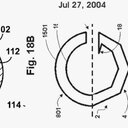Oxymatrine inhibits the proliferation of prostate cancer cells in vitro and in vivo.
Nyckelord
Abstrakt
Oxymatrine is an alkaloid, which is derived from the traditional Chinese herb, Sophora flavescens Aiton. Oxymatrine has been shown to exhibit anti‑inflammatory, antiviral, and anticancer properties. The present study aimed to investigate the anticancer effects of oxymatrine in human prostate cancer cells, and the underlying molecular mechanisms of these effects. An MTT assay demonstrated that oxymatrine significantly inhibited the proliferation of prostate cancer cells in a time‑ and dose‑dependent manner. In addition, flow cytometry and a terminal deoxynucleotidyl transferase‑mediated dUTP‑biotin nick end‑labeling assay suggested that oxymatrine treatment may induce prostate cancer cell apoptosis in a dose‑dependent manner. Furthermore, western blot analysis demonstrated a significant increase in the expression of p53 and bax, and a significant decrease in that of Bcl‑2, in prostrate cancer cells in a dose‑dependent manner. In vivo analysis demonstrated that oxymatrine inhibited tumor growth following subcutaneous inoculation of prostate cancer cells into nude mice. The results of the present study suggested that the antitumor properties of oxymatrine, may be associated with the inhibition of cell proliferation, and induction of apoptosis, via the regulation of apoptosis‑associated gene expression. Therefore, the results may provide a novel approach for the development of prostate cancer therapy using oxymatrine, which is derived from the traditional Chinese herb, Sophora flavescens.




